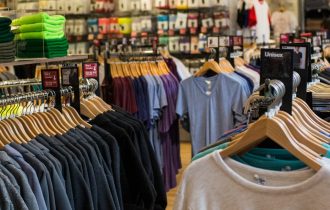Introduction to the Apparel Industry
The world of fashion is an ever-evolving and dynamic landscape that captivates the hearts and minds of millions of people around the globe. Central to this captivating world is the apparel industry, a sector that plays a pivotal role in shaping trends, influencing cultural expression, and addressing the needs of our daily lives. In this article, we embark on a journey to explore the multifaceted and fascinating realm of apparel, from its historical roots to its modern-day impact on society and the environment.
The story of apparel dates back to the earliest human civilizations when clothing was primarily crafted for practical purposes. From protecting against the elements to meeting cultural and social norms, clothing became an essential aspect of human life. Throughout history, garments evolved with technological advancements, craftsmanship, and cultural exchanges, reflecting the societies that produced them.
The concept of fashion, as we know it today, emerged during the Renaissance period when fashion trends began to gain prominence among the elite classes. Since then, apparel has become a powerful means of self-expression, allowing individuals to communicate their identities, beliefs, and values through what they wear.
Fast forward to the modern era, and the apparel industry has grown into a global powerhouse with a complex network of designers, manufacturers, retailers, and consumers. Major fashion capitals like Paris, Milan, New York, and London have become synonymous with haute couture, luxury brands, and trendsetting designers.
The rise of globalization has significantly influenced the fashion landscape. Designs from one corner of the world can now influence trends worldwide in a matter of days, thanks to rapid communication and digital media. Moreover, global supply chains have facilitated the production and distribution of apparel on an unprecedented scale.
In recent decades, fast fashion has emerged as a dominant force in the apparel industry. Fast fashion brands produce inexpensive, trendy clothing in response to the latest fashion trends. This business model has gained popularity due to its ability to quickly bring new designs to market, enticing consumers to make frequent purchases.
However, the fast fashion model has also raised concerns about its environmental and ethical implications. The relentless pursuit of low-cost production has led to issues such as excessive waste, poor working conditions, and unsustainable consumption patterns. As a result, an increasing number of consumers and industry stakeholders are calling for more sustainable and responsible practices.
Amid growing environmental and social concerns, sustainable fashion has emerged as a crucial movement within the apparel industry. Sustainable fashion aims to minimize the environmental impact of clothing production while promoting fair labor practices and ethical sourcing.
Leading fashion brands are now incorporating eco-friendly materials, adopting circular economy principles, and embracing transparency in their supply chains. Additionally, consumers are becoming more conscious of their apparel choices, seeking out eco-friendly brands and supporting second-hand and upcycled fashion.
Technology has revolutionized every aspect of our lives, and the apparel industry is no exception. From design to manufacturing and retail, innovative technologies have reshaped the way we create and consume fashion.
Computer-aided design (CAD) software allows designers to bring their ideas to life with precision and efficiency. Virtual try-on technologies enable consumers to experience how garments look and fit before making a purchase online. Moreover, advancements in 3D printing hold the potential to transform the manufacturing process, reducing waste and enabling customization.
As society becomes more inclusive and diverse, the fashion industry has started to reflect these changes. There is a growing recognition of the importance of representing different body types, ethnicities, genders, and identities in fashion.
Brands that embrace inclusivity and diversity in their campaigns and product offerings are resonating with a broader audience and fostering a sense of belonging among consumers. This shift towards a more inclusive fashion industry is not only empowering but also long overdue.
The apparel industry is a captivating blend of history, creativity, and innovation. From its humble origins as a basic necessity to its current status as a global economic force, apparel has evolved into much more than just clothing. It is a form of art, a means of expression, and a reflection of the ever-changing world we live in.
As we move forward, the fashion industry faces challenges and opportunities. Embracing sustainability, technology, and inclusivity will be key to shaping a fashion future that is not only stylish but also responsible and inclusive. By being conscious consumers and supporting ethical practices, we can contribute to a more sustainable and compassionate apparel industry for generations to come.











